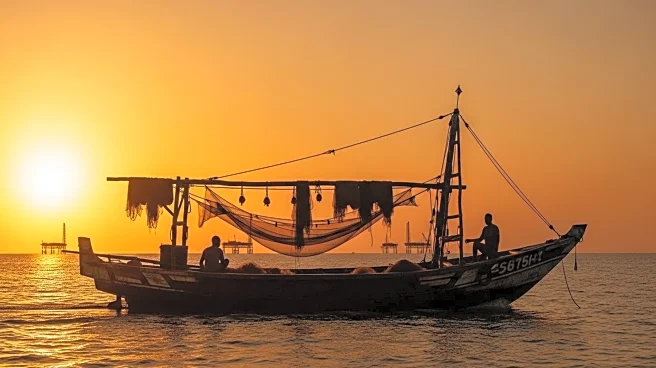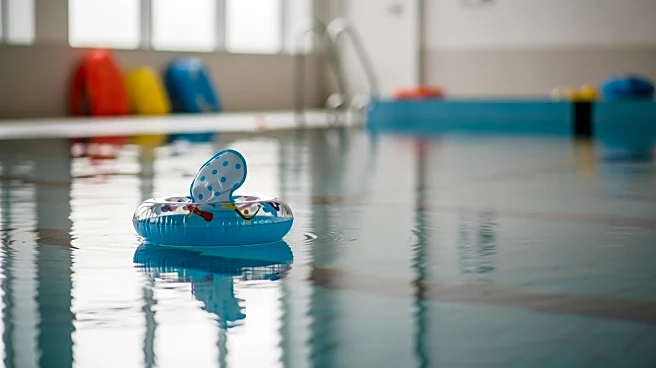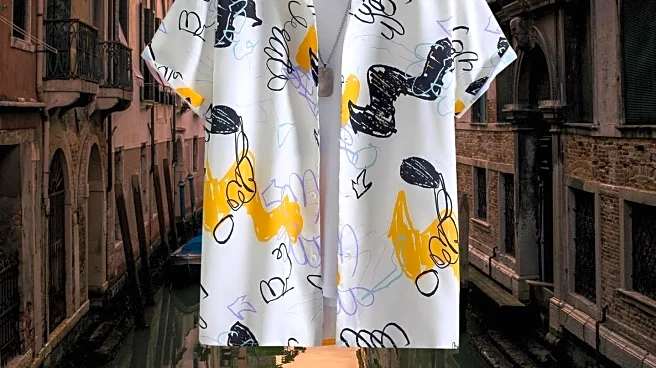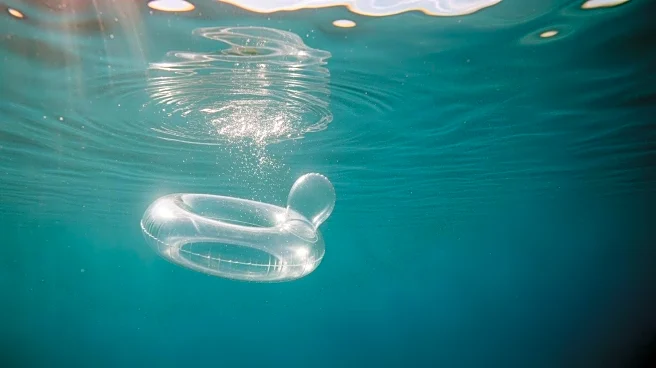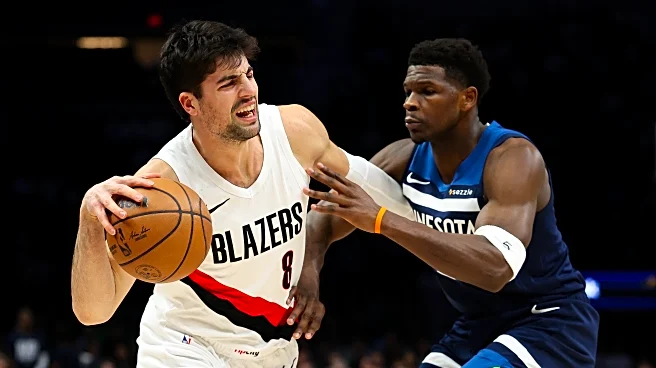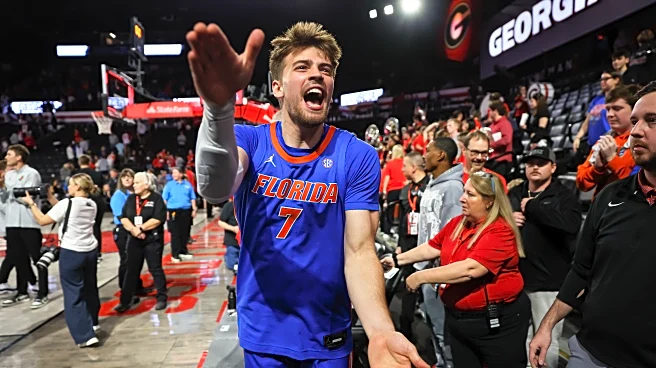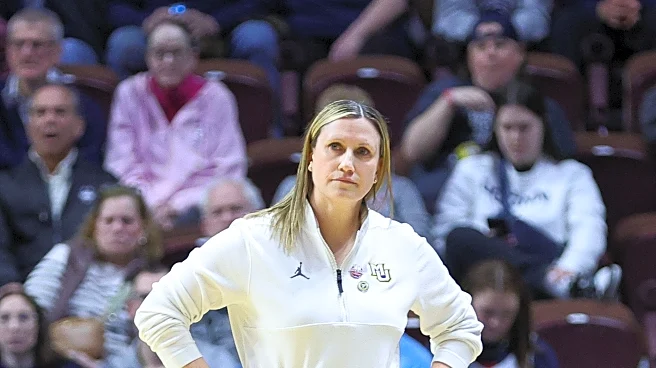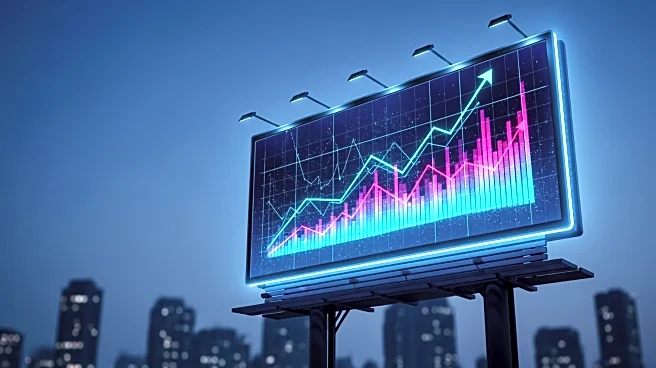What is the story about?
What's Happening?
Fishermen in Saint-Louis, Senegal, are attributing dwindling fish stocks to a BP-operated liquefied natural gas platform located on the maritime border between Senegal and Mauritania. The Greater Tortue Ahmeyim gas project, a joint venture involving BP, Kosmos Energy, and national oil companies of Senegal and Mauritania, has imposed fishing restrictions around the platform. Fishermen claim these restrictions, along with competition from international trawlers, have severely impacted their livelihoods. BP has stated that safety zones around infrastructure are standard practice and that concerns about fishing stocks predate the gas project.
Why It's Important?
The conflict between the gas project and local fishing communities highlights the challenges of balancing industrial development with traditional livelihoods. Fishing is a critical economic activity in Senegal, providing direct and indirect employment to a significant portion of the population. The restrictions imposed by the gas project threaten the economic stability of these communities, potentially leading to increased unemployment and social unrest. The situation underscores the need for sustainable development practices that consider the socio-economic impacts on local populations.
What's Next?
BP has promised to create artificial reefs to compensate for restricted access to natural fishing grounds, but progress has been slow. The company plans to complete a substantial reef complex by the end of 2025. Meanwhile, local fishermen and advocacy groups are likely to continue pressing for more immediate solutions and greater transparency from BP and the government. The situation may also prompt discussions on policy measures to ensure that industrial projects do not disproportionately affect vulnerable communities.
